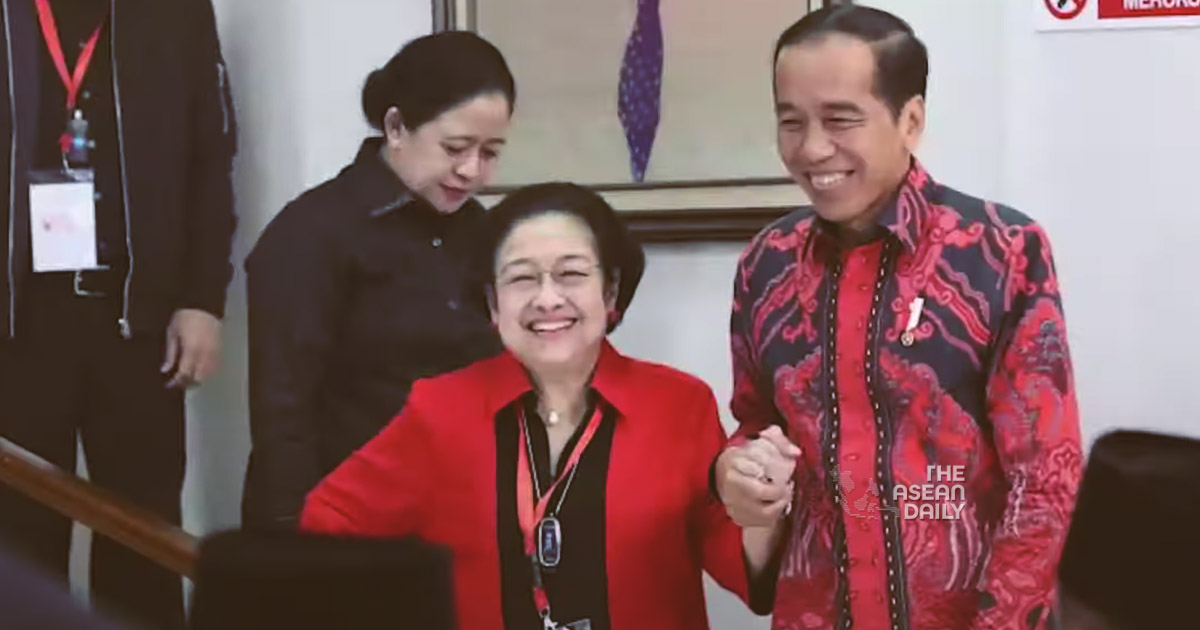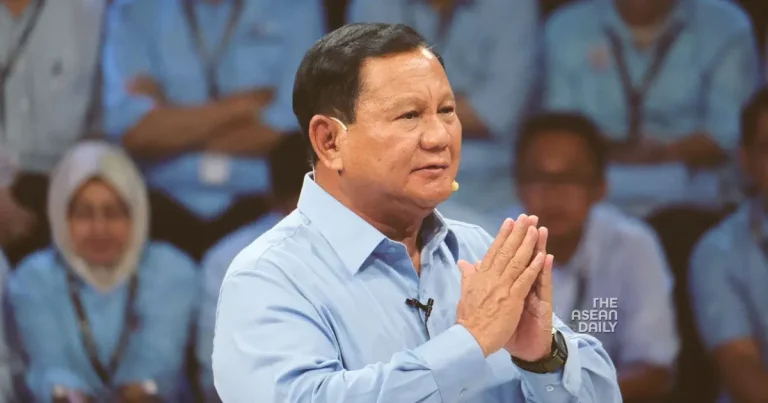12-10-2024 (JAKARTA) After over a decade as Indonesia’s nearly man, Prabowo Subianto is set to be sworn in as the country’s president next weekend, marking the end of Joko Widodo’s transformative tenure. The key question now looming is whether the 72-year-old will continue on the path laid out by his predecessor or embark on a new trajectory for the nation.
Prabowo’s success in February’s general election was widely attributed to the tacit support of President Widodo, also known as Jokowi. Campaigning on a platform of continuity, Prabowo made a strategic decision by selecting Widodo’s eldest son, Gibran Rakabuming Raka, as his running mate—a move that saw his popularity surge in the polls.

However, Prabowo is not merely the beneficiary of Widodo’s endorsement. With a career spanning half a century, including military service, founding his own political party, and holding public office, he is a formidable political figure in his own right. Analysts suggest that his strongman persona resonated deeply with the electorate, especially amid growing regional and global uncertainties.
Despite suffering defeats in the 2009 vice-presidential race and two presidential contests in 2014 and 2019—both of which he lost to Widodo—Prabowo’s political fortunes turned in 2020 when he was appointed as defence minister. His ascension to the presidency on 20 October will see him vacate this role, closing a chapter of collaboration with his one-time rival.
According to Alexander Arifianto, senior fellow at Singapore’s S. Rajaratnam School of International Studies, Prabowo may view the presidency as a long-awaited personal triumph. “Prabowo likely sees this as his earned right after years of waiting in the wings. He may feel entitled to lead Indonesia his own way,” said Arifianto.
Over the past ten years, Jokowi has dominated Indonesia’s political landscape, maintaining high approval ratings, which hover around 75%, even as his term draws to a close. As the incoming president, Prabowo will face close scrutiny to determine whether he honours agreements made with Widodo, particularly concerning policy continuity and safeguarding the outgoing leader’s legacy.

While there is an expectation that Prabowo may preserve aspects of Widodo’s administration, his governance style—honed through military service and shaped by a promise to fulfil his campaign pledges—will likely differ. His critics fear a more authoritarian approach, a concern rooted in Prabowo’s contentious past.
Unlike Widodo, who ascended from humble beginnings as a furniture salesman, Prabowo hails from a prominent political family. His father, Sumitro Djojohadikusumo, served under Sukarno and Suharto—Indonesia’s first two presidents—while his grandfather established Bank Negara Indonesia, one of the country’s largest state-owned enterprises.
Prabowo’s military career began in 1970 when he graduated from the Indonesian Military Academy. He served in the elite Kopassus special forces during Suharto’s regime but was dismissed from the military in 1998 amid allegations of human rights abuses linked to the abduction and torture of political activists. Though Prabowo has denied these accusations, and was never formally charged, his reputation has been tarnished by these events. Both the United States and Australia imposed travel bans on him, only lifted when he became defence minister.
Ahmad Rizky Umar, a political researcher at Aberystwyth University, notes that Prabowo’s leadership style is likely to be more hardline than Jokowi’s. “He dislikes opposition,” Umar remarked. “He’s demonstrated a lack of tolerance for journalists or civil society critics, and his priority during this transition appears to be consolidating power by filling his government with loyal allies.”
Prabowo has already secured alliances with seven political parties, giving him control of 82% of Indonesia’s parliamentary seats. Only the Indonesian Democratic Party of Struggle (PDI-P), the current ruling party, remains outside his coalition. There are even rumours of a potential meeting with PDI-P leader Megawati Sukarnoputri, which could further consolidate his dominance.

Ian Wilson, a senior fellow at Murdoch University’s Indo-Pacific Research Centre, suggests that Prabowo’s political vision leaves little room for opposition. “Prabowo’s idea of politics is a coalition of everyone. His aim seems to be a government without functional opposition,” said Wilson.
Widodo’s administration paved the way for this consolidation by removing the previous 34-ministry cap on cabinet size. Local reports indicate that Prabowo could expand his cabinet to 44 ministers, potentially leading to bloated bureaucracy but also ensuring loyalty.
Prabowo has made bold promises, including a major initiative to provide free meals for Indonesia’s 83 million schoolchildren, expected to cost $4.5 billion in its first year, with annual costs exceeding $27 billion by 2029. This proposal has garnered strong support, especially among low-income families, for whom the rising cost of living has made access to healthy food a challenge.
The president-elect is also expected to uphold several of Jokowi’s economic policies, such as promoting value-added manufacturing and continuing social assistance programmes aimed at the nation’s poor. However, where he might diverge is the flagship Nusantara project, Jokowi’s ambitious plan to relocate the nation’s capital, which could be sidelined in favour of other urban development priorities.
On the international stage, Prabowo is poised to take a more personal and proactive role in foreign relations than his predecessor. Fluent in multiple languages and with extensive international experience, he has already embarked on several diplomatic trips since winning the election, including to China, Japan, Malaysia, and Russia. His visits have emphasised defence cooperation and the strengthening of Indonesia’s global profile.

Arifianto believes that Prabowo may become Indonesia’s “de facto foreign minister,” leveraging his international connections to bolster the country’s standing. “Prabowo’s upbringing and global experiences position him well to navigate international affairs, something Jokowi largely left to his diplomats,” he explained.

However, Prabowo’s assertive stance on national sovereignty, especially in the disputed South China Sea, could signal a more confrontational approach to territorial issues, particularly around the Natuna Islands. Analysts also expect a sharp increase in defence spending under Prabowo, continuing the modernisation programme he championed as defence minister.




